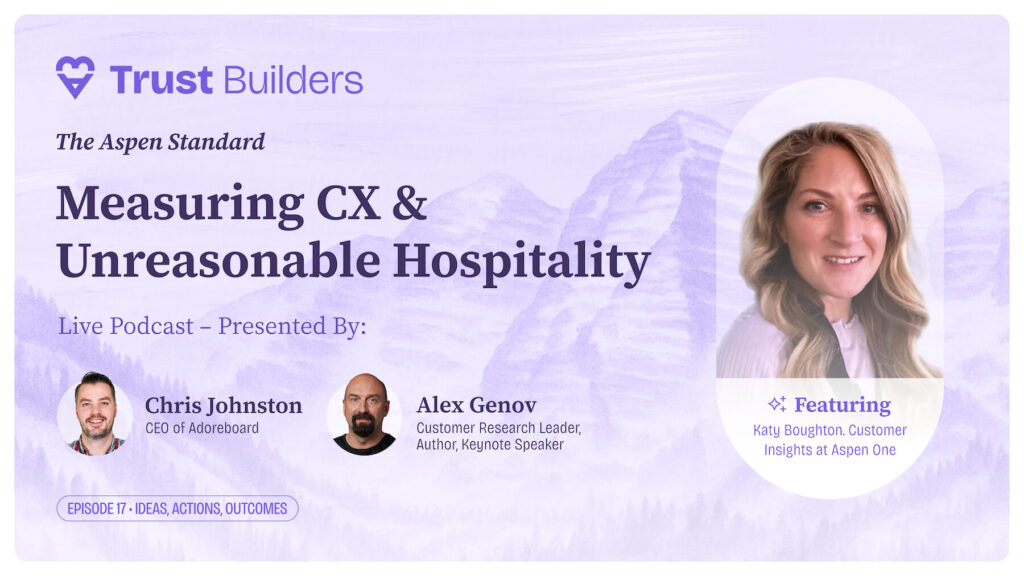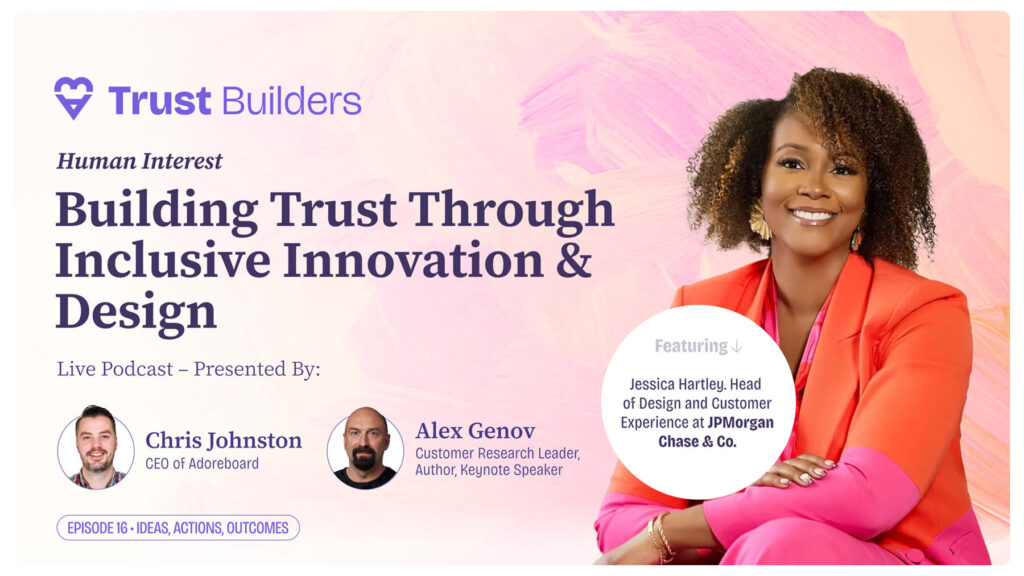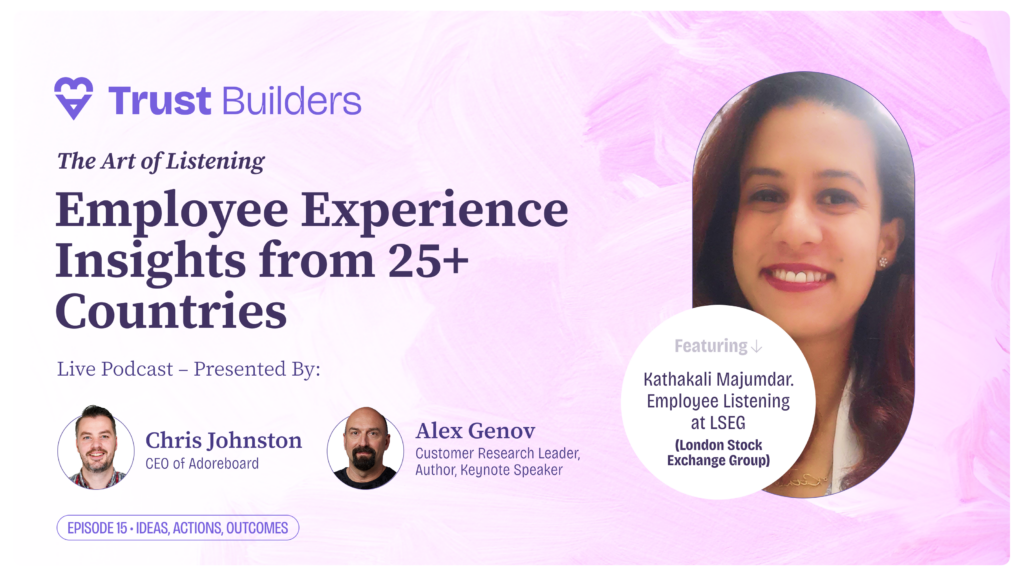This week we sat down with Nick Lynn PhD who is the Senior Director at Willis Towers Watson and author of his new book “Employee Experience (EX) Leadership.” Nick has over 20 years of experience implementing employee insight and is currently part of the senior leadership team at Willis Towers Watson.
The HX academy is an educational hub and place to share insight and knowledge about the world of Human Experience (HX). Nick’s experience and wealth of insight from his new book made for a very interesting interview.
Tell us about yourself and what sparked your interest in the world of Employee Experience?
I am a researcher, writer and consultant. I help leaders and teams to improve employee engagement and to build positive work cultures. I enjoy analysing data, helping to fix potential problems, and creating better workplaces as a result.
What inspired you to write you book “Employee Experience (EX) Leadership: Build Trust through Employee Experience and Engagement?”
This is a really exciting time to be doing this kind of work. For one thing, trust and engagement have never mattered more to business success. We operate in an experience-based economy where talent and organisation are the critical ingredients for high performance. But at the same time, there are a lot of pressures that make building trust difficult. For example, automation, off-shoring and new work arrangements are adding to job status insecurity. If you think about the employment deal, I would argue that a lot more risk now falls on the side of individual employees. In fact, there’s an almost perfect storm affecting trust in the workplace, and low trust is a major drag on many companies’ performance.
The good news is that there are new and exciting opportunities for closing this trust gap and for me that’s what the new science of Employee Experience (EX) is all about. Traditional efforts, such as engagement programmes, have helped many companies achieve a lot. But EX is a way of making further progress. For many organisations, it’s the next leg on their journey. Lots of people are talking about EX at the moment. Based on my experience, I wanted to reflect on both the opportunities and the risks associated with these new approaches.
How did you find the book writing process? Any learnings along the way?
I spent 18 months writing the book in my evenings and at weekends and I loved it. It was a chance to reflect on a lot of things that I have seen. It was fun to talk to my clients and colleagues and to capture their perspectives. I came out of it feeling very lucky to have worked with some many great people and organisations. You can overlook that sometimes when you’re in the hurly-burly of busy client work.
What key learnings do you want your readers to take away from your book?
There are probably two main things.
First, when it comes to understanding employee experience, there are new opportunities for more direct and powerful insights than, for example, traditional survey efforts provide. In general, I think that the rise of engagement surveys led to a dumbing down of employee research. Lots of companies have run engagement surveys as a tick-box exercise or to chase a score. For me, EX analytics provide a chance to answer key business questions instead, such as how do we improve collaboration? How do we encourage innovation? How do we ensure the whole organisation is focused on outstanding customer service.
Second, when it comes to activating employee experience, leadership is the critical thing. EX has to be a leadership perspective. Effectively, it’s how you deliver your business strategy. There are some things that great EX leaders do well. For example, they provide a clear sense of purpose and meaning at work. They focus on team learning. They look to personalise communications and experiences. They also act as great role models. Their own behaviour really matters.
What is your view on the link between employee experience and customer experience? Do you think they all impact each other?
Yes, for all organisations, your employee experience is critical for delivering outstanding customer experiences. Put plainly, it’s not possible to provide a simple and effective customer experience if your internal tools are clunky and hard to use. You’re not going to achieve customer delight if the people dealing with your customers are disengaged. It’s impossible to deliver great service if your employees are unable to exercise their own judgement effectively.
A successful customer experience strategy is the result of your company’s culture and ways of working. How you interact internally within your company will have an impact on external interactions too. As a result, leading companies realise that they have to focus on employees when they try to improve their customer experience.
You talk a lot about the importance of trust in your book, how do you think trust can impact employee experience?
Trust is critical to the way every organisation functions, from the smallest start-up to the largest multinational. I believe all the projects I have run can be put under the heading of building trust, whether the aim has been to improve collaboration and efficiency, to encourage innovation, to increase customer focus, and so on.
Trust is at the heart of the people’s experience at work. A positive experience strengthens trust, but in order to have a positive experience, there needs to be some degree of trust in the first place.
This operates in big and small ways. For example, a positive experience could be that my manager gives me useful feedback, which helps me improve the way I support a customer. I feel a stronger sense of achievement as a result. But I need to trust my manager to some degree already, in order to be open to receive the feedback constructively. This kind of situation is repeated throughout the workday in lots of ways. Trust has always mattered to organisational effectiveness. But it’s my belief that it matters even more for leading tomorrow’s workforce.
What is one bit of advice you would give EX professionals or those looking to transform their employee experience?
I’m a big advocate for making lots of small changes, which in combination can add up to something big, even transformational. I think this applies especially to EX where there are both opportunities and risks. There is no one way ahead for all organisations. Companies will take different paths. But they always begin with small steps and learning from what’s working and what’s not. A good framework for this is design thinking, which has become very popular. Design thinking involves things like understanding with empathy, prototyping, testing and iterating. It can be a challenge sometimes for HR to operate in this way, but when it works well it’s very effective.
What do you think the future holds for the employee experience space?
EX is already a hot topic and I think interest in EX is only going to grow over time. For HR, EX can provide the framework that connects all its separate activities.
Internal social media (platforms like Slack, Teams and Workplace and online portals) are going to play an increasingly important role in the future. These platforms bring the performance marekting approach that has become so prevalent in external marketing and advertising to the world of internal communications, employee engagement and employee experience. Just as in the CX world, a rich data set is now available for EX analytics, including clicks, likes, reactions, comments, surveys, polls, and so on. It’s possible to personalise communications based on analytics and to quickly iterate and then refine messages based on how people are responding.
Related to this, organisations now have a massive pool of data which is non-numeric and unstructured, in other words text, images, sound and video. As a result, there is an explosion of interest in qualitative data analysis. Being able to use machine learning and data science to make sense f this human and messy data is a huge opportunity. It’s why platforms like Adoreboard are so important for the future of EX insights and activation.
What is your most-used productivity hack?
The best productivity adivce that I was given – years ago – is that the most important decisions you make are about what you’re not going to do. That’s something I have always tried to think about. Don’t end up not doing things simply because you run out of time or because other things take over. Make it a conscious decision about what you’re going to get off your plate.
Otherwise, I live in Evernote. It’s where I store and organise all my thoughts and work.
What publications, websites or thought-leaders do you go to for engaging content? For business or entertainment.
For stuff on business, economics and psychology, I follow Barry Ritholz @ritholtz who always cuts to the chase.
For anything on people analytics, David Green @david_green_uk is a great sharer of ideas and work.
I really enjoy Medium, especially journals like Nightingale (by the Data Visualisation Society)
I read a lot of novels, all genres, ranging from historical fiction to sci-fi. At the moment I am reading Recursion by Blake Crouch, which is about memory-based time travel and is a bit mind-blowing, to be honest.
Thanks for such an interesting and thought-provoking interview Nick! You can connect with Nick on Twitter at @nickl4 and LinkedIn.
For more insights on Employee Experience Leadership, you can order his book here.




